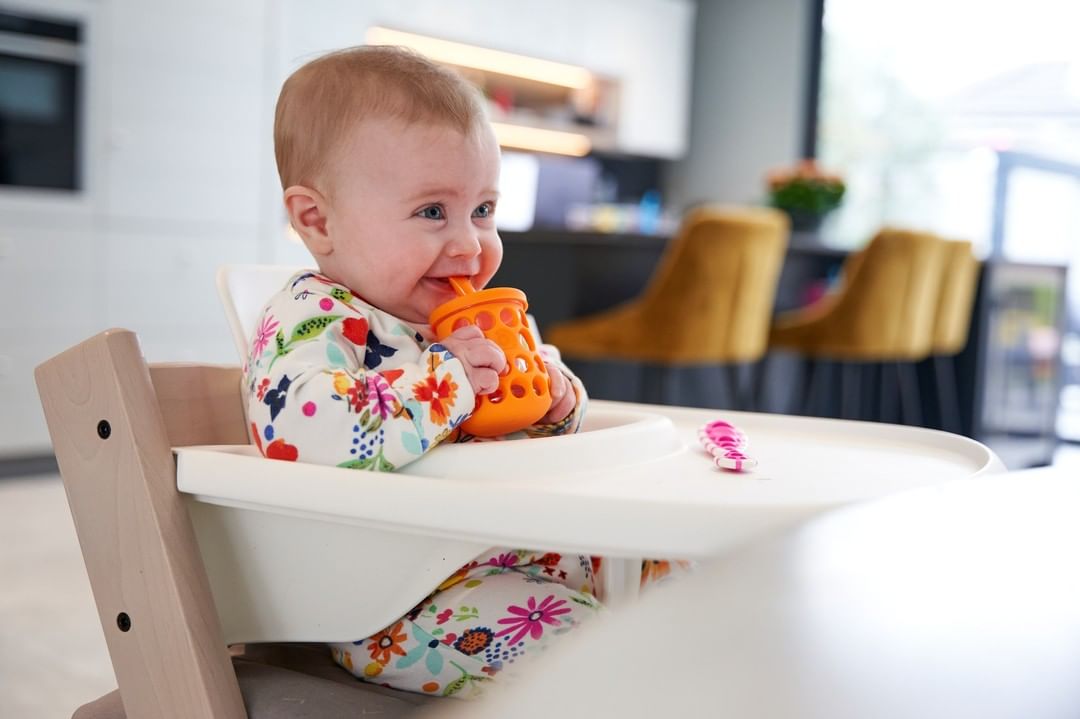
Founder of CogniKids™ and neurological developmental therapist, Ollwyn Moran will bring you through each baby developmental milestones and stages of growth for your baby, sharing what to expect, what to look out for, and how to nurture each stage of development.
Baby developmental milestones: 2-3 months
Your baby’s vision will be clearer every day and she will start to smile at you. It’s important that you stimulate your baby’s intellectual growth by talking, singing, and reading to your baby. Introduce a few minutes of tummy time everyday to give your baby the opportunity to exercise her neck muscles. She will attempt to lift her head but will only manage a few seconds at first.
| Emotional
● Begins to smile at people ● May suck on her hand or thumb to briefly self-soothe |
Communication
● Coos, makes gurgling sounds ● Turns head toward sounds
|
| Cognitive
● Pays attention to faces ● Begins to follow things with eyes and recognise ● people ● Begins to cry or get fussy when bored |
Physical Development
● Can hold head up and begins to push up when lying on tummy ● Makes smoother movements with arms and legs |
Developmental Aids: Around month three, your baby will get better at controlling her hands and her fingers can grasp on to toys. A floor gym with colourful hanging objects will help your baby practice kicking and reaching for items, furthering her motor skills and cognitive development.
Things to look out for : flattening of the head (Plagiocephaly ) or head favouring / tilting to one side (Torticollis )
Baby developmental milestones: 4-5 months
At four months, your baby will laugh and smile when you engage with her and will start to experiment with different sounds. Your baby will also begin to roll over now, and with the support of pillows she can learn to sit up on her own too.
| Emotional
● Smiles spontaneously, especially at people ● Likes to play with people ● Copies some movements and facial expressions, like smiling or frowning
|
Communication
● Babbles with expression and copies sounds she hears ● Cries in different ways to show hunger, pain, or tiredness
|
| Cognitive
● Will let you know if she is happy or sad ● Responds to affection ● Reaches for toy with one hand ● Will track a moving object with eyes from side to side ● Watches faces closely, recognises familiar people
|
Physical Development
● Holds head steady, unsupported ● Pushes down on legs when feet are on a hard surface ● May be able to roll over from tummy to back ● Can hold a toy and shake it ● When lying on stomach, pushes up to elbows
|
Developmental Aids: Babies will really start to explore their toys at this age by holding them in their hands and bringing them to their mouth. Chunky toys in different shapes, colours and with a variety of surfaces are perfect for this age group. Toys that wobble will also encourage your child to reach and help their eye tracking ability. Your baby can hold their own bottle now, so try using the feeding Cognikids bottle cover to make it easier for your little one, while helping to develop the pincer grip.
Things to Avoid: Containers such as walkers / door hoppers etc. Avoid using physical containers to aid sitting or packing up with pillows etc.
Things to do: There are lots of little activities that you can do with your little one to help them develop the muscles required for self sitting.
To shop the CogniKids™ range at McCauley, click here
If you found this blog useful, why not check out some of our other helpful blogs here
